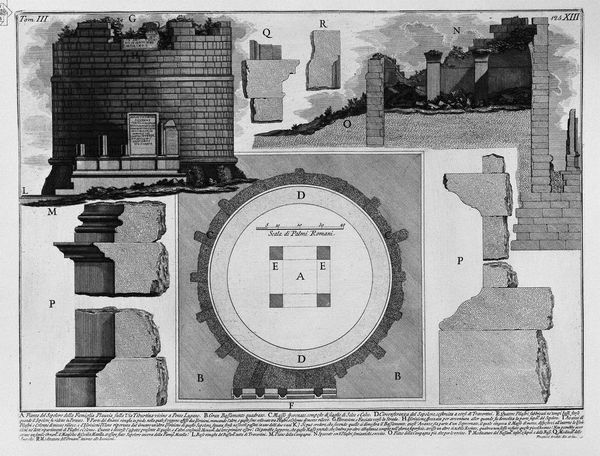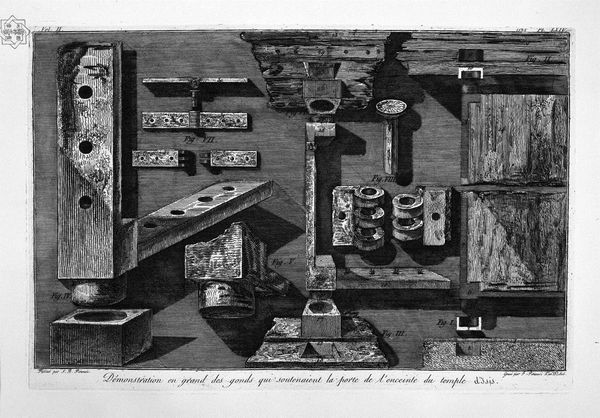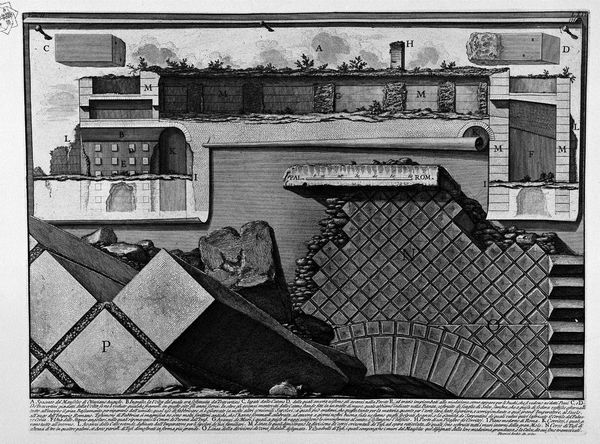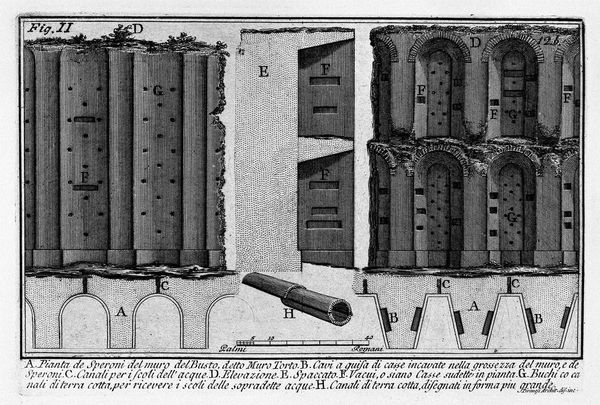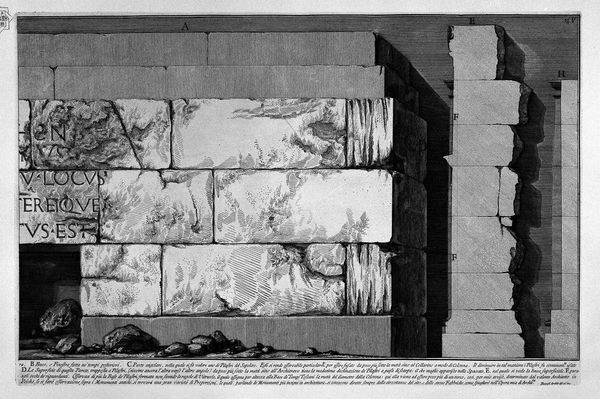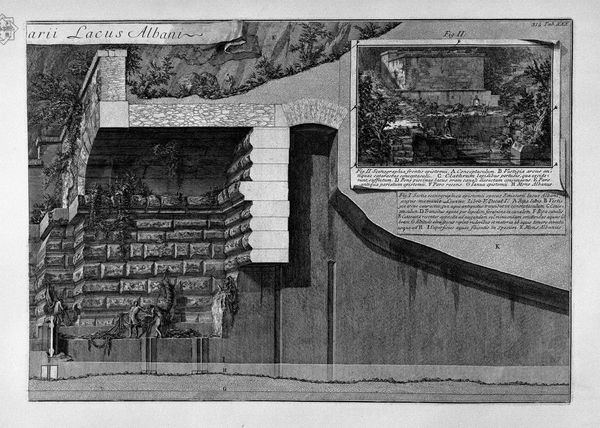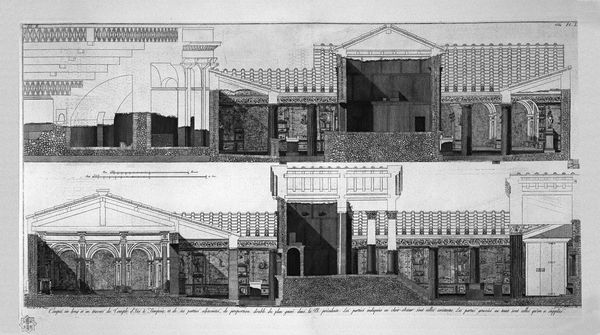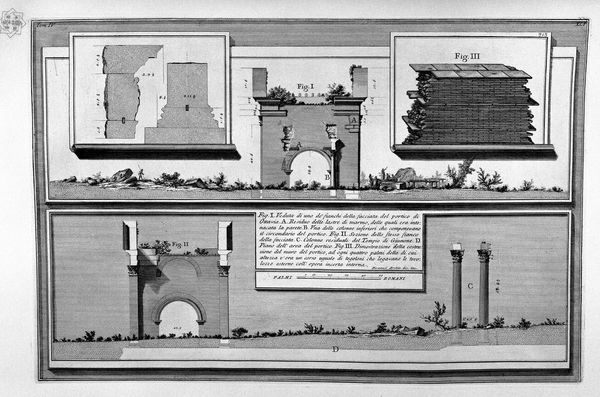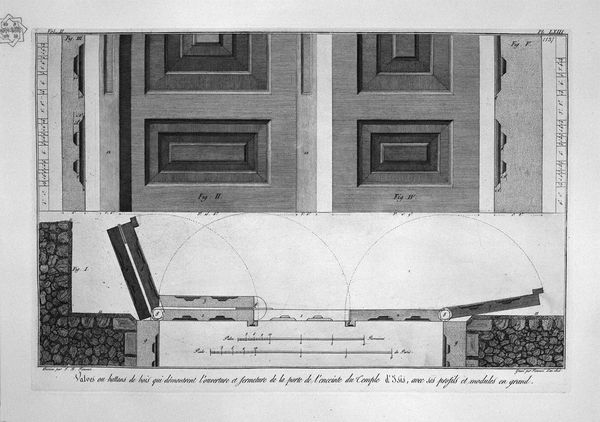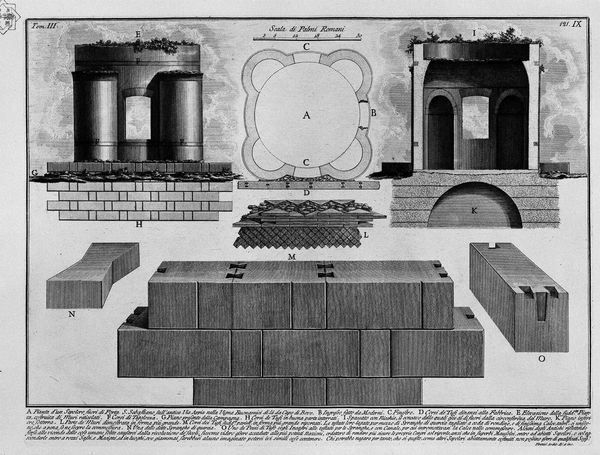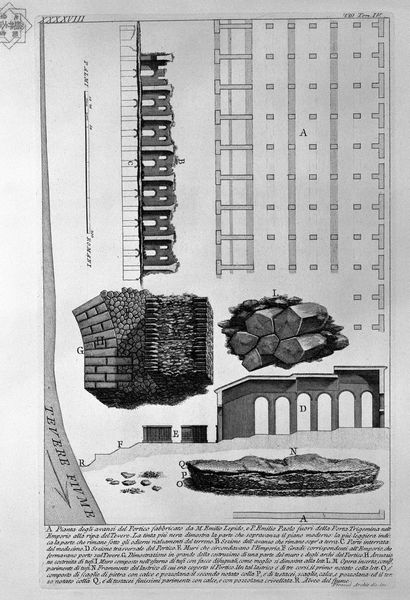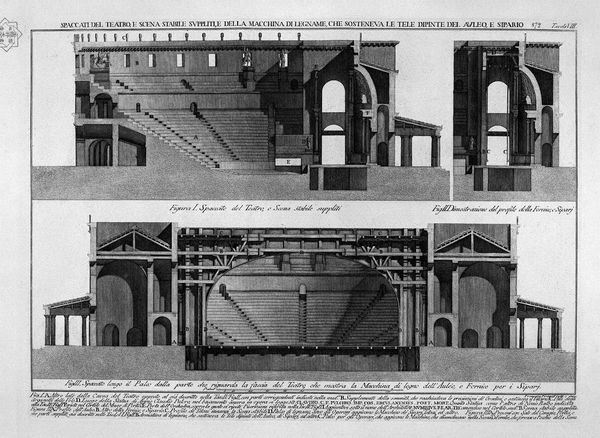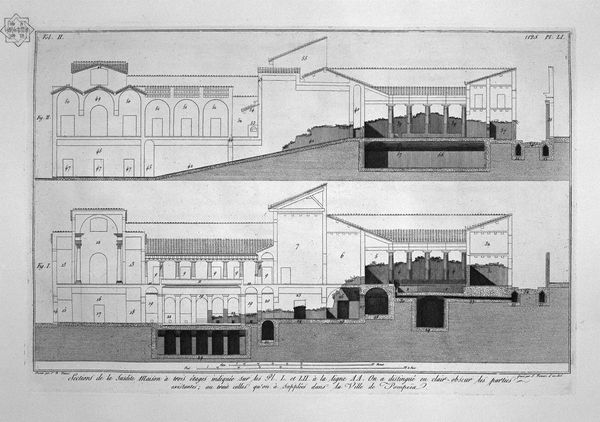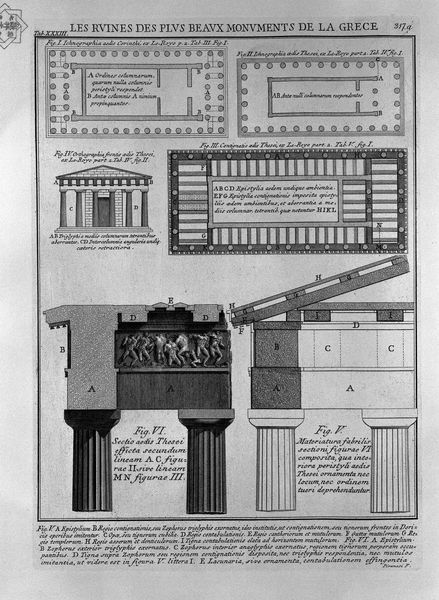
The Roman antiquities, t. 3, Plate III. Part of the ancient Appian Way about five miles from the Porta S. Sebastiano.
0:00
0:00
drawing, print, etching, engraving, architecture
#
drawing
#
architectural landscape
# print
#
etching
#
landscape
#
perspective
#
form
#
romanesque
#
ancient-mediterranean
#
arch
#
line
#
architectural proposal
#
cityscape
#
engraving
#
architecture
Copyright: Public domain
Giovanni Battista Piranesi created this etching of the Appian Way around 1756, and it presents a complex interplay of archaeological documentation and artistic interpretation. Piranesi uses stark contrasts and precise linework to achieve dramatic effects, evoking a sense of sublime grandeur amidst ruin. The composition is layered with multiple perspectives, juxtaposing detailed plans of ancient structures with imagined reconstructions. This fracturing of space disorients the viewer, challenging fixed notions of perspective. Through these visual techniques, Piranesi conveys not just the physical decay of Rome but also the fragmentation of historical knowledge. The meticulous details, combined with exaggerated scale, reflect the Enlightenment's interest in classifying and understanding the world through empirical observation. Yet, by destabilizing a coherent viewpoint, Piranesi suggests that history is always mediated. Ultimately, this etching is less about the past and more about the complex negotiation between observation, interpretation, and representation.
Comments
No comments
Be the first to comment and join the conversation on the ultimate creative platform.
